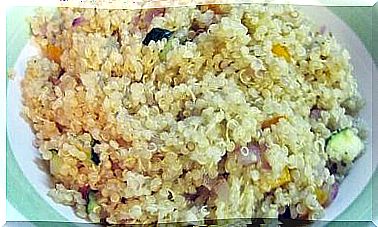Calcium In The Athlete’s Diet
Calcium is an important mineral in the athlete’s diet. It fulfills functions at the health level, it is involved in the transmission of the nervous impulse and, in addition, it directly affects sports performance.
It is a nutrient that is responsible for depolarizing the neuron, which allows the passage of electric current that, later, will innervate the muscle tissue, causing a contraction.
A failure in the activation of calcium channels is associated with the onset of fatigue. This situation can originate from the accumulation of waste metabolites in the tissues or from a loss of said mineral through sweat.
What are the functions of calcium? Why is it important to ensure an optimal contribution in the diet of athletes? There are those who want answers to these questions. Therefore, below we detail everything about it.
Calcium is part of the bones
Calcium is important in the athlete’s diet because it is part of the bones. In fact, it is one of the minerals found in the highest proportion within the human body.
A correct supply of this nutrient, together with frequent sun exposure, reduces the risk of bone fracture in adulthood, as stated in an article published in the journal JAMA .
For this reason, a correct supply of food with this mineral minimizes the problems associated with bone health. This is decisive for any athlete, especially for those who practice activities that involve physical contact.

Intervenes in fatigue
Calcium is one of the minerals involved in maintaining electrolyte balance. A reduction in the deposits of the same could cause the appearance of fatigue or, even, cause cramps and muscle aches.
Therefore, it is recommended to take a mineral salt pill before starting a long-term workout to compensate for electrolyte losses through sweat.
Thus, monitoring electrolyte balance is one of the most effective ways to avoid sharp drops in performance, as suggested by a publication in the journal Materia Socio-Medica .
Nerve impulse depends on calcium
Efficiency in nerve impulse transmission depends on calcium. Without this mineral, depolarization of neurons does not occur, which makes the genesis of an action potential that conducts electrical signals through axons impossible. Consequently, the signal does not reach the muscle tissues and tissue contraction is impossible.
However, to reach this extreme, there must be a very high level of fatigue or, failing that, there must be too low calcium levels in the body. This is a very rare situation, except for cases of extreme dehydration.
Calcium in the athlete’s diet
The good news is that calcium is a mineral that is very present in the usual diet of the athlete and most of the people. It can be found in dairy and many vegetables.
However, there are certain substances that limit its absorption, such as phytates. There are also vitamins capable of increasing their bioavailability. This is the case of vitamin D, whose endogenous synthesis depends on sun exposure.
On the other hand, there are foods that are capable of providing this vitamin (such as oily fish and eggs), but the amounts of it are quite low.

Calcium is an essential mineral in the athlete’s diet
For all the reasons mentioned, calcium is an essential mineral for life and for the athlete. It is easily found in nature and is abundant within the human body.
Ensuring the correct levels of this nutrient helps prevent the appearance of muscle cramps and fatigue processes. In addition, it is responsible for ensuring the transmission of the nerve impulse.
A deficiency of the same can condition the appearance of chronic and complex pathologies. For this reason, it is recommended to ensure its intake, along with that of vitamin D, from the first years of life.









